On Tuesday the Supreme Court heard oral arguments in a group of cases that will determine whether Title VII’s prohibition against discrimination because of sex extends to discrimination because of sexual orientation and gender identity. The unifying theme was division. Headlines from SCOTUSblog, The Washington Post, The Associated Press, BBC, NBC, Bloomberg, and Reuters all described a Court split down the middle.
Commentators agreed that the positions of two camps were relatively clear. Justice Alito expressed strong doubt about the plaintiffs’ sex discrimination claims, telling Pamela Karlan, the plaintiffs’ attorney in the sexual orientation cases, that she was “trying to change the meaning of what Congress understood sex to mean and what everybody understood sex to mean in 1964.” He cautioned that the Court would be “acting exactly like a legislature.” Justice Kagan, meanwhile, said that Title VII “pretty firmly” supported the plaintiffs’ position. The three other liberals seemed to agree, directing their most skeptical questions to the employers’ attorneys. Justice Thomas maintained his usual silence.
The major debate was whether one of three other conservative justices – Chief Justice Roberts, Justice Kavanaugh, or Justice Gorsuch – would side with the liberals. When the Court granted cert in April, commentators speculated that Roberts and Kavanaugh were the most likely conservatives to favor an expansive reading of Title VII. But on Tuesday, Gorsuch emerged as the most probable swing vote. In oral argument in Bostock, Gorsuch questioned the employers’ attorney’s claim that sex discrimination and sexual orientation were distinct. “Isn’t sex also in play here, and isn’t that enough?” Gorsuch asked. During oral argument in Harris, Gorsuch characterized Aimee Stephens’s case as “really close” on a textual basis. Still, he asked whether the Court should exercise “judicial modesty” in the face of the “massive social upheaval” he thought a decision favorable to transgender workers would trigger. Ian Millhiser at Vox explained that the Court may come to different conclusions in the sexual orientation and gender identity cases. Mark Joseph Stern at Slate also predicted Gorsuch could “split the baby.” At The Washington Post, Dana Milbank said that “[t]he question is whether Gorsuch will interpret the text of the law the way he claims to – or devise an excuse to produce his desired [anti-LGBTQ] result.”
Buzzfeed focused its attention on Justice Kavanaugh, who kept his cards close to his chest. On Tuesday, he posed a single question, asking the employers’ attorney in the sexual orientation cases if he was making a distinction between the “literal” and “ordinary” meanings of the phrase “because of . . . sex” in Title VII. Professor Katie Eyer at Rutgers Law posited that Kavanaugh may have been “searching for a way to argue that while the plaintiff[s’] textualist argument reflects the ‘literal’ textual meaning of the words, it does not reflect their ‘ordinary’ meaning (and that ‘ordinary’ meaning controls).”
The prospect of an LGBTQ-friendly vote from Chief Justice Roberts seemed even less promising. He voiced concern about religious exemptions, stating that state legislatures that have enacted LGBTQ workplace protections have carved out religious groups, which the Supreme Court likely could not do with respect to Title VII. He also suggested that transgender discrimination would not be discrimination because of sex if employers discriminated equally against transgender men and women.
A primary focus of Tuesday’s proceedings was bathrooms. As Masha Gessen wrote in The New Yorker: “Justice Roberts wanted to talk about bathrooms. Justice Gorsuch wanted to talk about bathrooms. [Stephens’s lawyer David] Cole tried to say, in a legal way and a polite way, that bathrooms were not the problem that the Justices imagine them to be. Then Justice Sotomayor wanted to talk about bathrooms.” Chinyere Ezie from the Center for Constitutional Rights counted 36 references to bathrooms, 16 references to restrooms, 6 references to sports, 3 references to locker rooms, and 3 references to shelters during oral arguments. The justices even raised the issue in Bostock, when gender identity was not the focus. In response, Karlan explained that the legality of sex-specific bathroom and dress code policies was not an issue so long as those distinctions did not subject workers to an injury. David Cole reiterated the point during oral argument in Harris. When Justice Sotomayor raised the issue of whether cisgender women faced any harm from the presence of transgender women in a shared restroom, Cole emphasized that the question was not before the Court.
Following the Court’s cert grants this spring, predictions from LGBTQ advocates were gloomy. But Tuesday’s oral arguments gave workers at least some hope that they could prevail. No matter the outcome, advocates vowed to keep fighting. “The government does not have the final say on who we are,” said ACLU attorney Chase Strangio, “We do.”
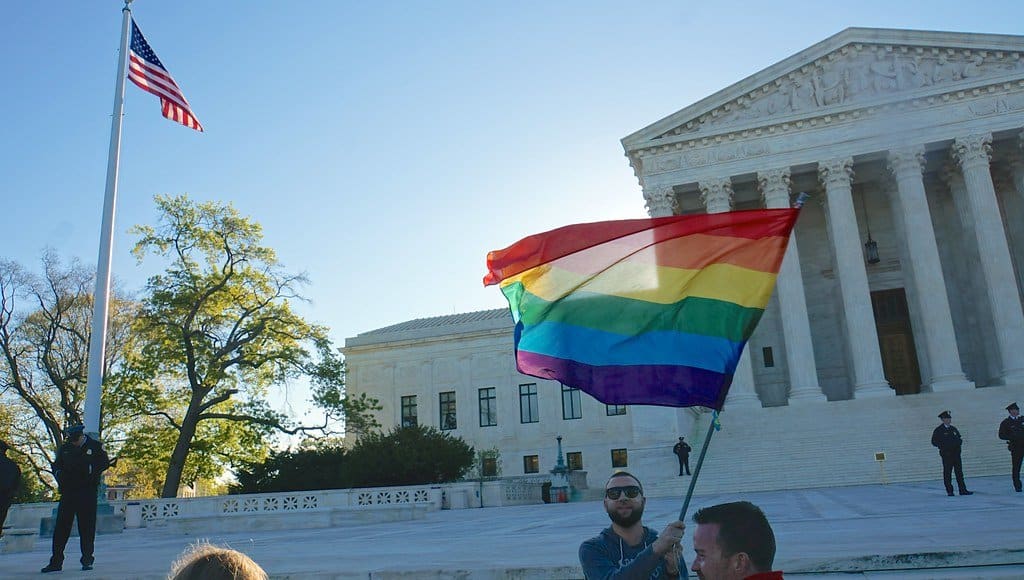
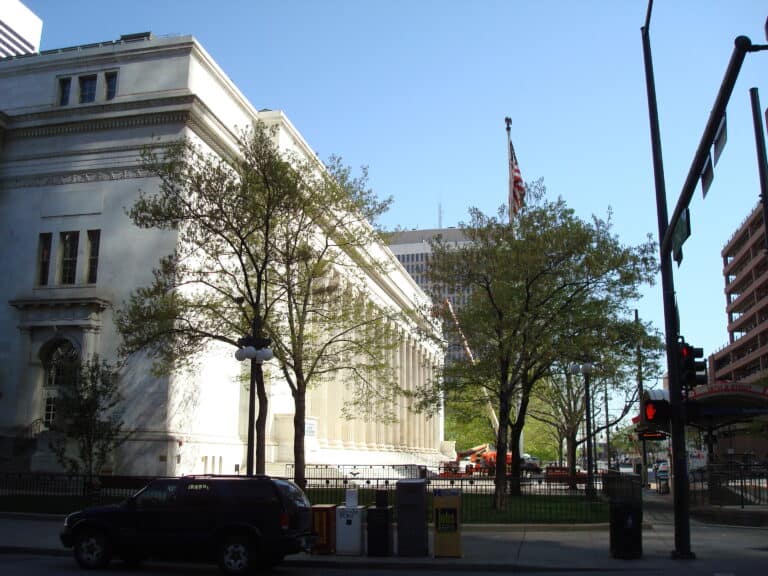
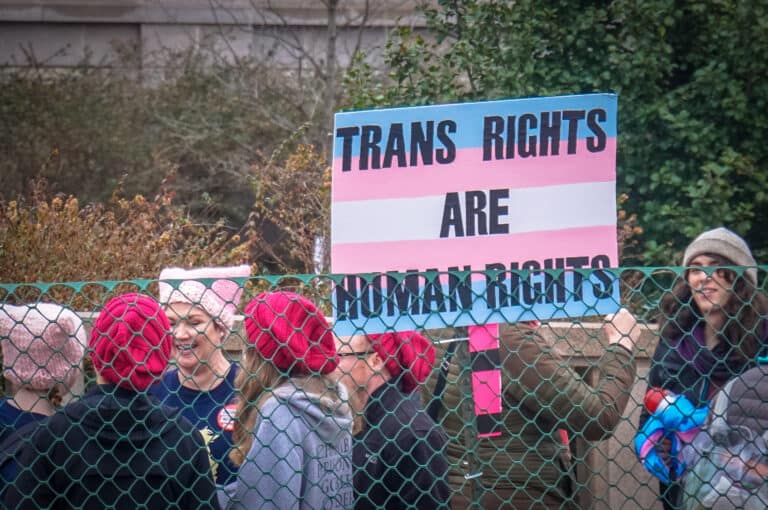
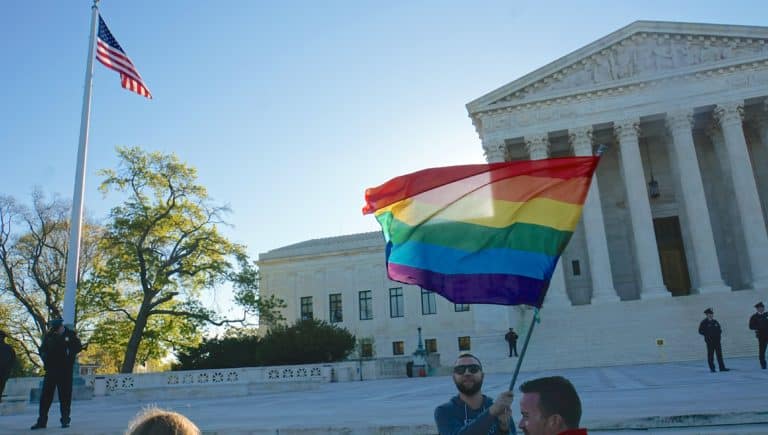
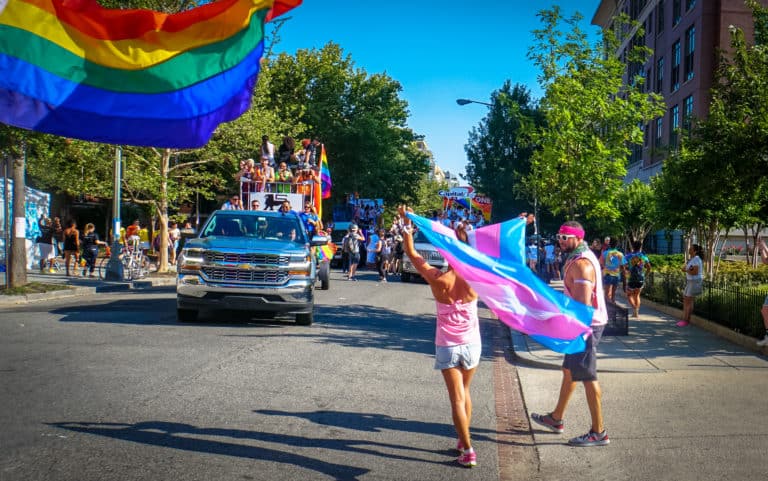





Daily News & Commentary
Start your day with our roundup of the latest labor developments. See all
February 20
An analysis of the Board's decisions since regaining a quorum; 5th Circuit dissent criticizes Wright Line, Thryv.
February 19
Union membership increases slightly; Washington farmworker bill fails to make it out of committee; and unions in Argentina are on strike protesting President Milei’s labor reform bill.
February 18
A ruling against forced labor in CO prisons; business coalition lacks standing to challenge captive audience ban; labor unions to participate in rent strike in MN
February 17
San Francisco teachers’ strike ends; EEOC releases new guidance on telework; NFL must litigate discrimination and retaliation claims.
February 16
BLS releases jobs data; ILO hosts conference on child labor.
February 15
The Office of Personnel Management directs federal agencies to terminate their collective bargaining agreements, and Indian farmworkers engage in a one-day strike to protest a trade deal with the United States.